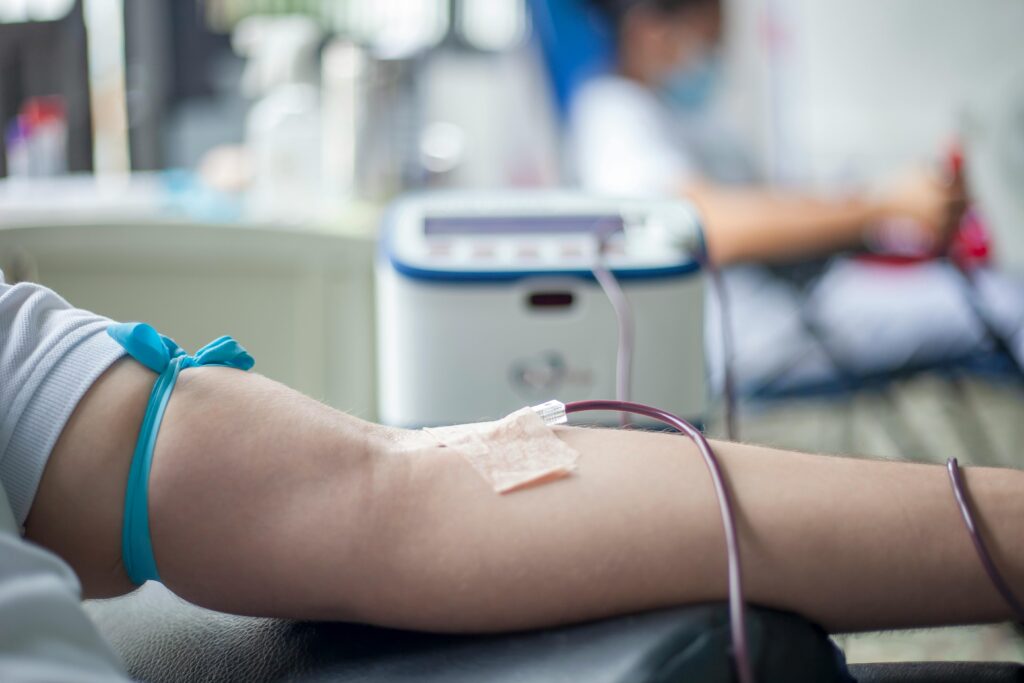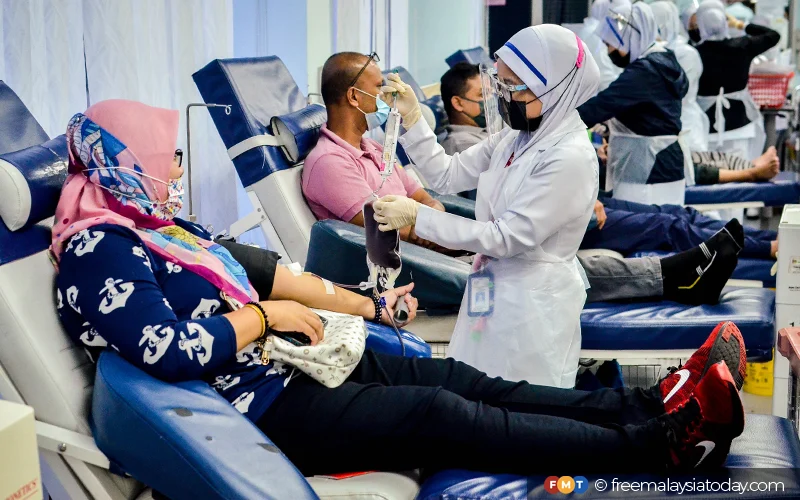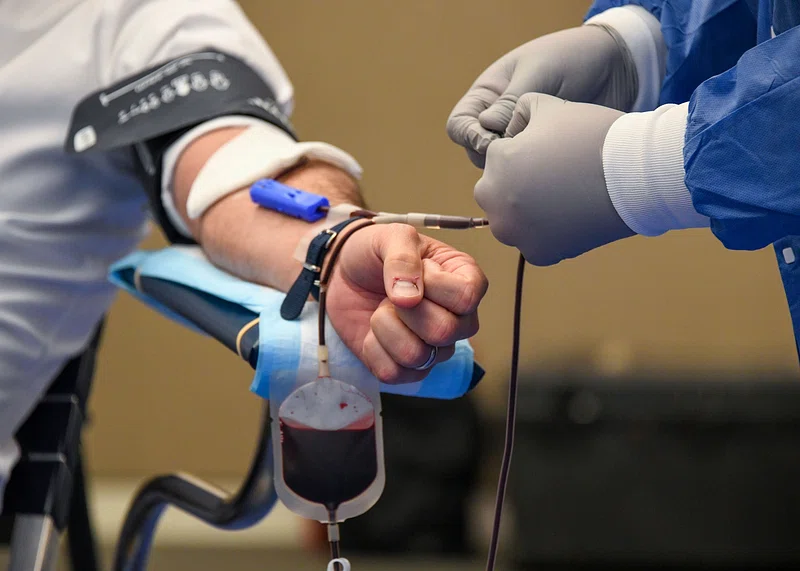Outline
H1: Introduction
- Why this topic matters today
- Brief look at the NHS blood donation crisis
H2: Understanding Blood Donation
- H3: What is blood donation?
- H3: Different types of blood donations
- Whole blood
- Platelet donation
- Plasma donation
H2: The Role of the NHS in Blood Collection
- H3: How the NHS Blood and Transplant (NHSBT) service works
- H3: Importance of a stable blood supply
H2: Why Blood Donation is More Urgent Than Ever
- H3: Current shortages and critical need
- H3: COVID-19 aftermath and donation decline
- H3: Increasing demand for blood
H2: Who Needs Donated Blood?
- H3: Accident victims and emergency surgeries
- H3: Cancer patients
- H3: People with blood disorders (e.g., sickle cell, thalassemia)
H2: Who Can Donate Blood?
- H3: Basic eligibility criteria
- H3: Common misconceptions about donation
- H4: Age, weight, health conditions
H2: The Blood Donation Process
- H3: Before you donate
- H3: During the donation
- H3: Aftercare and recovery
H2: Benefits of Donating Blood
- H3: Health benefits for the donor
- H3: Psychological rewards
H2: Diversity and Blood Donation
- H3: Why ethnic diversity in donors matters
- H3: Rare blood types and matching challenges
H2: Challenges Facing the NHS Blood Donation System
- H3: Low turnout among young people
- H3: Misinformation and fear
- H3: Donor fatigue
H2: How You Can Help
- H3: Signing up and booking appointments
- H3: Encouraging others to donate
- H3: Volunteering and advocacy
H2: Blood Donation Myths Debunked
- H3: It hurts – myth or truth?
- H3: You can’t donate if you’re on medication
H2: Blood Donation and the Community
- H3: Creating a culture of giving
- H3: Stories from real donors
H2: Innovations and the Future of Blood Donation
- H3: Artificial blood and research
- H3: Mobile blood units and digital sign-ups
H2: Conclusion
H2: FAQs
- Why is O-negative blood so important?
- How often can I donate blood?
- Can I donate blood if I’ve had COVID-19?
- What happens to my blood after donation?
- Is there any compensation for donating?

Introduction
Picture this: you’re in an accident and need a blood transfusion. Within minutes, a stranger’s selfless act becomes your lifeline. That’s the power of blood donation — and right now, the NHS urgently needs more heroes like you.
Across the UK, the NHS Blood and Transplant service is sounding the alarm: blood stocks are dangerously low. The post-pandemic world, combined with rising medical needs, has created a perfect storm of scarcity. But there’s hope — and that hope is you.
Understanding Blood Donation
What is Blood Donation?
Blood donation is a voluntary process where you allow your blood to be drawn so it can be used to save lives. It’s safe, quick, and one of the most impactful things you can do.
Different Types of Blood Donations
Not all donations are the same — here’s a quick breakdown:
- Whole Blood: The most common type. Used for trauma, surgery, and anemia.
- Platelet Donation: Vital for cancer and transplant patients.
- Plasma Donation: Helps patients with liver disease, burns, or infections.
Each type has its unique use — but all are desperately needed.
The Role of the NHS in Blood Collection
How the NHS Blood and Transplant (NHSBT) Service Works
NHSBT oversees the collection, testing, storage, and distribution of blood across the UK. Every donation is rigorously screened and matched to patients who need it most.
Importance of a Stable Blood Supply
Hospitals rely on a consistent blood supply for daily operations — from scheduled surgeries to emergency trauma care. A shortage can mean delays, cancellations, or worse.
Why Blood Donation is More Urgent Than Ever
Current Shortages and Critical Need
According to NHSBT, blood stocks have dipped below the five-day safety level — a red flag. O-negative blood (the universal type) is especially in short supply.
COVID-19 Aftermath and Donation Decline
During the pandemic, donations plummeted due to lockdowns and health fears. While restrictions have lifted, donation rates haven’t bounced back.
Increasing Demand for Blood
With an aging population and more complex surgeries, the demand for blood keeps rising. We’re using more blood than we’re collecting.
Who Needs Donated Blood?
Accident Victims and Emergency Surgeries
Every second counts in a trauma case — blood transfusions can mean life or death.
Cancer Patients
Many cancer treatments, especially chemotherapy, severely lower blood cell counts, requiring regular transfusions.
People with Blood Disorders
Conditions like sickle cell anemia or thalassemia require lifelong transfusion support.

Who Can Donate Blood?
Basic Eligibility Criteria
Generally, you can donate if you:
- Are aged 17–65
- Weigh over 50kg (110 lbs)
- Are in good general health
Common Misconceptions About Donation
Think you can’t donate because of a tattoo or travel history? Think again — many restrictions are outdated or misunderstood.
Age, Weight, Health Conditions
Minor issues like colds or medications may delay donation but won’t disqualify you permanently.
The Blood Donation Process
Before You Donate
Eat a healthy meal, stay hydrated, and bring ID. That’s it.
During the Donation
A trained professional collects about 470ml of blood — roughly 8% of your body’s supply. You’ll barely miss it.
Aftercare and Recovery
Rest for a few minutes, have a snack, and you’re good to go. Most people return to normal activity the same day.
Benefits of Donating Blood
Health Benefits for the Donor
Some studies suggest blood donation can improve heart health and reduce iron levels — but don’t donate just for the perks.
Psychological Rewards
There’s nothing like knowing your donation could save three lives. It’s a quick fix of purpose in a hectic world.
Diversity and Blood Donation
Why Ethnic Diversity in Donors Matters
Matching blood types is more than just A, B, AB, or O. Certain rare subtypes are more common in specific ethnic groups.
Rare Blood Types and Matching Challenges
Patients with rare blood disorders (like sickle cell, more prevalent in Black communities) often require blood from donors of the same background.
Challenges Facing the NHS Blood Donation System
Low Turnout Among Young People
Millennials and Gen Z aren’t donating at rates needed to replenish aging donor pools.
Misinformation and Fear
Needles, myths, and “I’m too busy” attitudes contribute to lower donation rates.
Donor Fatigue
Regular donors can only give so often. Without new donors, the system stalls.
How You Can Help
Signing Up and Booking Appointments
Visit blood.co.uk or download the NHS Give Blood app. It takes five minutes to register.
Encouraging Others to Donate
Host a group donation, post your story on social media, or just talk about your experience. Peer pressure isn’t always bad!
Volunteering and Advocacy
Can’t donate? You can still make a difference by volunteering at donation centers or spreading awareness.

Blood Donation Myths Debunked
It Hurts – Myth or Truth?
Honestly? It’s a quick pinch. The discomfort is minimal and over in seconds.
You Can’t Donate if You’re on Medication
Not always true. Many medications don’t disqualify you — check with NHSBT.
Blood Donation and the Community
Creating a Culture of Giving
Schools, workplaces, and religious groups can all foster a donation-friendly environment. Make it a norm, not an exception.
Stories from Real Donors
People who donate regularly say it’s empowering, humbling, and addictive (in a good way). You could be next.
Innovations and the Future of Blood Donation
Artificial Blood and Research
Scientists are developing synthetic alternatives, but we’re not there yet. Until then, real blood is irreplaceable.
Mobile Blood Units and Digital Sign-Ups
NHSBT is making it easier than ever — mobile donation vans and instant appointment apps bring donation to your doorstep.
Conclusion
The NHS needs blood — and not just someday, but now. Whether you’re a seasoned donor or a first-timer, your contribution matters more than ever.
Blood isn’t something that can be manufactured or stockpiled forever. It’s a living gift that only humans can give — and right now, the gift of life is in short supply. Be the reason someone gets a second chance.
FAQs
1. Why is O-negative blood so important?
O-negative is the universal donor blood type — it can be used in emergencies when there’s no time to test a patient’s blood.
2. How often can I donate blood?
Men can donate every 12 weeks; women every 16 weeks.
3. Can I donate blood if I’ve had COVID-19?
Yes, once you’re fully recovered and meet NHSBT guidelines, you’re eligible to donate.
4. What happens to my blood after donation?
It’s tested, processed into components, and delivered to hospitals for patients in need.
5. Is there any compensation for donating?
No financial payment — but you’ll get a snack, a thank-you, and the priceless feeling of saving a life.
For more articles like this , Please Visit

Kıbrıs Kariyer | Kıbrıs iş ara kıbrıs kariyer, iş bulmak kıbrıs, kıbrıs işveren, kıbrıs asgari ücret
This is my first time pay a quick visit at here and i am really happy to read everthing at one place
There is definately a lot to find out about this subject. I like all the points you made
You’re so awesome! I don’t believe I have read a single thing like that before. So great to find someone with some original thoughts on this topic. Really.. thank you for starting this up. This website is something that is needed on the internet, someone with a little originality!
I just like the helpful information you provide in your articles
I’m often to blogging and i really appreciate your content. The article has actually peaks my interest. I’m going to bookmark your web site and maintain checking for brand spanking new information.